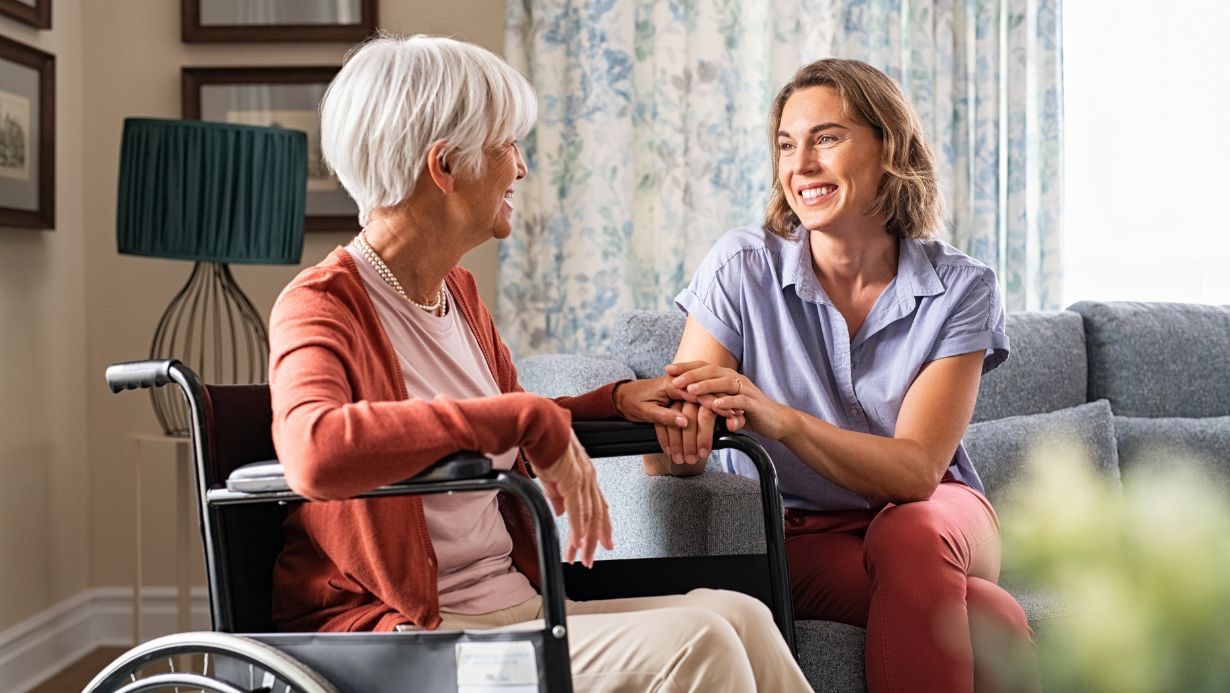Dementia and Home Safety
Aging often presents physical challenges – reduced mobility, vision problems, weakened bones, and more – which may require some modifications to a home (grab bars in the shower, additional handrails on steps, etc.) to keep aging loved ones safe. If an aging loved one is diagnosed with dementia or Alzheimer's, additional steps may be needed.
What is Dementia?
Dementia is a general term to describe a decline in cognitive function. Common symptoms include confusion, memory loss, impaired judgment, communication issues, and disorientation. Alzheimer's disease is the most common cause of dementia, accounting for approximately 60-80% of all cases, according to the Centers for Disease Control and Prevention (CDC).
Dementia Symptoms and Home Safety Issues
According to the Alzheimer's Association, Alzheimer's (and dementia) can cause "a number of changes in the brain and body that may affect safety." These changes may include one or more of the following:
- Judgment: forgetting how to use household appliances
- Sense of time and place: getting lost in one's own neighborhood
- Behavior: becoming easily confused, suspicious, or fearful
- Physical ability: having trouble with balance
- Senses: experiencing changes in vision, hearing, sensitivity to temperatures or depth perception
Dementia affects everyone differently, so each person's safety concerns and needs are different. Furthermore, dementia is a progressive syndrome, so symptoms may change or become worse over time, creating different safety needs and concerns.
Tips to Create a Safer Home
Generally, the best environment for someone with dementia is familiar and allows them to be as happy and independent as possible. A familiar environment and routines can help someone with dementia cope with their symptoms. In contrast, changes in the environment or their routines can add to their confusion and disorientation. Therefore, it's a delicate balance between keeping things familiar and ensuring a safe environment.
There is no one-size-fits-all list of safety measures for people with dementia. You need to consider their symptoms and make changes accordingly.
Here are some tips to consider based on their individual needs:
- Keep hallways, walkways, and rooms uncluttered
- Remove loose rugs or secure them to the floor
- Install good lighting in every room
- Safely store all medications
- Remove space heaters, electric blankets, etc.
- Install safety switches
- Install automatic cut-off mechanisms on appliances
- Replace or secure long electrical cords
- Lower the temperature of the water heater
- Install smoke detectors and/or ensure existing smoke detectors are fully functional
- Add a shower chair or bath seat
- Add textured stickers to slippery surfaces
- Consider installing a walk-in shower
- Install handrails in the shower and/or by the toilet
- Provide easy-to-read clocks and large calendars
- Have a list of contacts (including emergency contacts) in large print next to the telephone
- Consider removing or locking up guns and other weapons from the home
How to Prevent Wandering
"Six in 10 people living with dementia will wander at least once; many do so repeatedly," according to the Alzheimer's Association. "Although common, wandering can be dangerous — even life-threatening — and the stress of this risk weighs heavily on caregivers and family." The Association offers several home safety measures:
- Place deadbolts out of the line of sight.
- Use night lights.
- Cover door knobs with cloth the same color as the door or use safety covers.
- Camouflage doors by painting them the same color as the walls or covering them with removable curtains or screens.
- Use black tape or paint to create a two-foot black threshold in front of the door.
- Install warning bells above doors or use a monitoring device that signals when a door is opened.
- Place a pressure-sensitive mat in front of the door or at the person's bedside to alert you to movement.
- Put hedges or fencing around the patio, yard, and other outside common areas.
- Use safety gates or brightly colored netting to prevent access to stairs or the outdoors.
- Monitor noise levels to help reduce excessive stimulation.
- Create indoor and outdoor common areas that can be safely explored.
- Label all doors with signs or symbols to explain the purpose of each room.
- Store items that may trigger a person's instinct to leave, such as coats, hats, pocketbooks, keys, and wallets, out of sight.
Assistance for Aging in Place
Aging in place offers many benefits, and according to a 2021 AARP survey, "more than three-quarters of adults 50 and older said they wanted to stay in their homes or their communities as they age." But for someone with dementia or Alzheimer's, living alone can become a safety issue. As the disease progresses, it can become increasingly difficult for families to provide the care and support their loved ones need.
Comforting Home Care by Phoebe offers compassionate in-home dementia care and Alzheimer's care designed to provide your loved one with the assistance they need to live comfortably and safely at home.
Need help with an aging parent or loved one? Call us today at 610-625-5206 or connect with us online.
More From Our Blog

Berks County Office
Comforting Home Care by Phoebe
1 Reading Dr
Wernersville, PA 19565
Phone: 610-625-5206
Lehigh Valley Office
Comforting Home Care by Phoebe
3400 Bath Pike Ste 101
Bethlehem, PA 18017
Phone: 610-625-5600
The region's premier home care provider in Berks, Bucks, Lehigh, and Northampton Counties, including Allentown, Bath, Bethlehem, Easton, Emmaus, Fleetwood, Fogelsville, Hamburg, Hellertown, Hereford, Kutztown, Laurys Station, Leesport, Macungie, Mertztown, Mohnton, Nazareth, New Tripoli, Northampton, Oley, Orefield, Quakertown, Reading, Richlandtown, Robesonia, Schnecksville, Shillington, Shoemakersville. Sinking Spring, Temple, Topton, Trexlertown, Wernersville, Whitehall, Womelsdorf, Wyomissing, & Zionsville,
© Copyright 2023 | All Rights Reserved | Comforting Home Care by Phoebe
Website by Power Marketing International











